Nilavra Pathak
Off-Policy Evaluation and Counterfactual Methods in Dynamic Auction Environments
Jan 09, 2025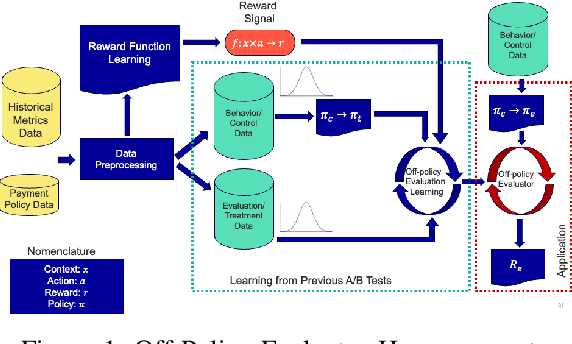
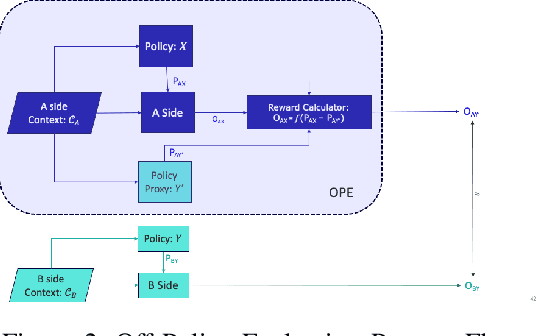
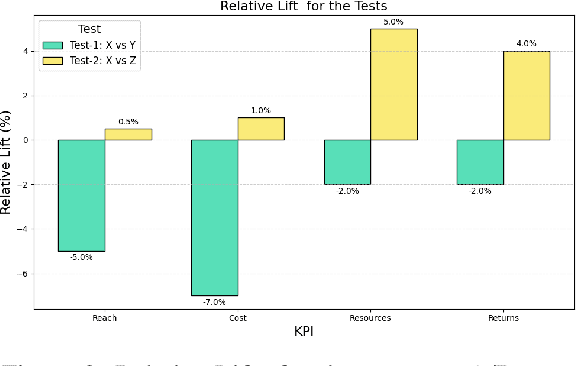
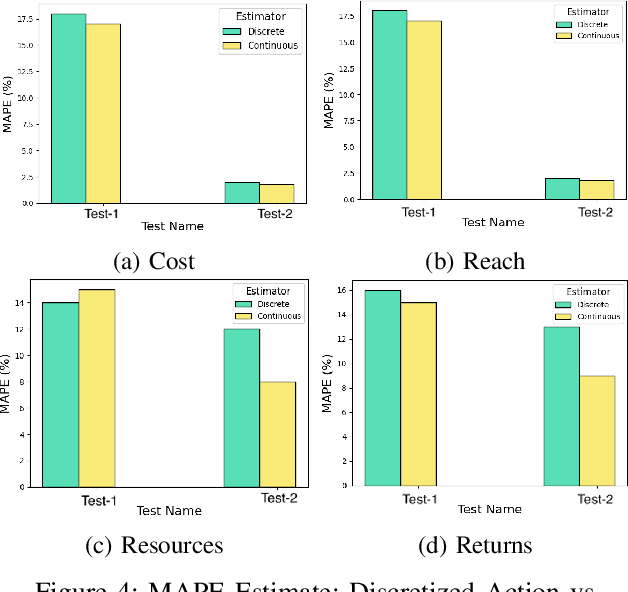
Abstract:Counterfactual estimators are critical for learning and refining policies using logged data, a process known as Off-Policy Evaluation (OPE). OPE allows researchers to assess new policies without costly experiments, speeding up the evaluation process. Online experimental methods, such as A/B tests, are effective but often slow, thus delaying the policy selection and optimization process. In this work, we explore the application of OPE methods in the context of resource allocation in dynamic auction environments. Given the competitive nature of environments where rapid decision-making is crucial for gaining a competitive edge, the ability to quickly and accurately assess algorithmic performance is essential. By utilizing counterfactual estimators as a preliminary step before conducting A/B tests, we aim to streamline the evaluation process, reduce the time and resources required for experimentation, and enhance confidence in the chosen policies. Our investigation focuses on the feasibility and effectiveness of using these estimators to predict the outcomes of potential resource allocation strategies, evaluate their performance, and facilitate more informed decision-making in policy selection. Motivated by the outcomes of our initial study, we envision an advanced analytics system designed to seamlessly and dynamically assess new resource allocation strategies and policies.
Estimating Buildings' Parameters over Time Including Prior Knowledge
Jan 09, 2019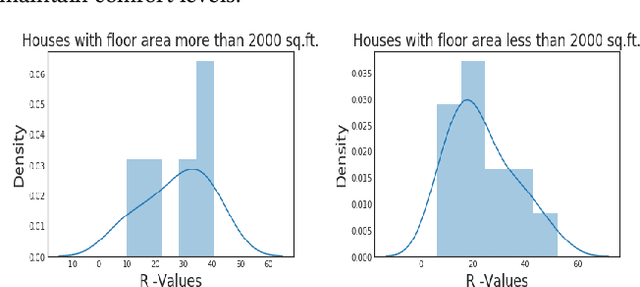
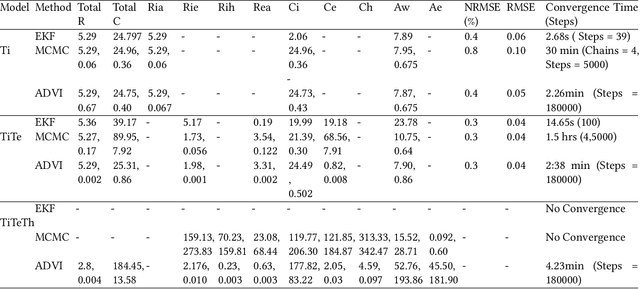
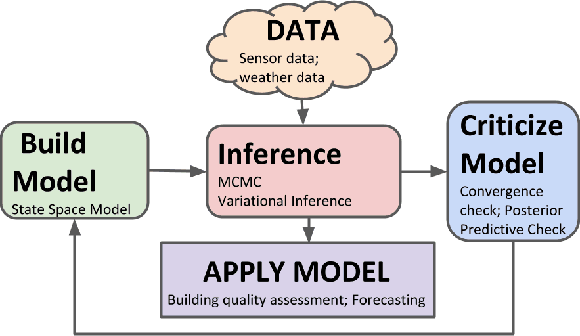

Abstract:Modeling buildings' heat dynamics is a complex process which depends on various factors including weather, building thermal capacity, insulation preservation, and residents' behavior. Gray-box models offer a causal inference of those dynamics expressed in few parameters specific to built environments. These parameters can provide compelling insights into the characteristics of building artifacts and have various applications such as forecasting HVAC usage, indoor temperature control monitoring of built environments, etc. In this paper, we present a systematic study of modeling buildings' thermal characteristics and thus derive the parameters of built conditions with a Bayesian approach. We build a Bayesian state-space model that can adapt and incorporate buildings' thermal equations and propose a generalized solution that can easily adapt prior knowledge regarding the parameters. We show that a faster approximate approach using variational inference for parameter estimation can provide similar parameters as that of a more time-consuming Markov Chain Monte Carlo (MCMC) approach. We perform extensive evaluations on two datasets to understand the generative process and show that the Bayesian approach is more interpretable. We further study the effects of prior selection for the model parameters and transfer learning, where we learn parameters from one season and use them to fit the model in the other. We perform extensive evaluations on controlled and real data traces to enumerate buildings' parameter within a 95% credible interval.
 Add to Chrome
Add to Chrome Add to Firefox
Add to Firefox Add to Edge
Add to Edge